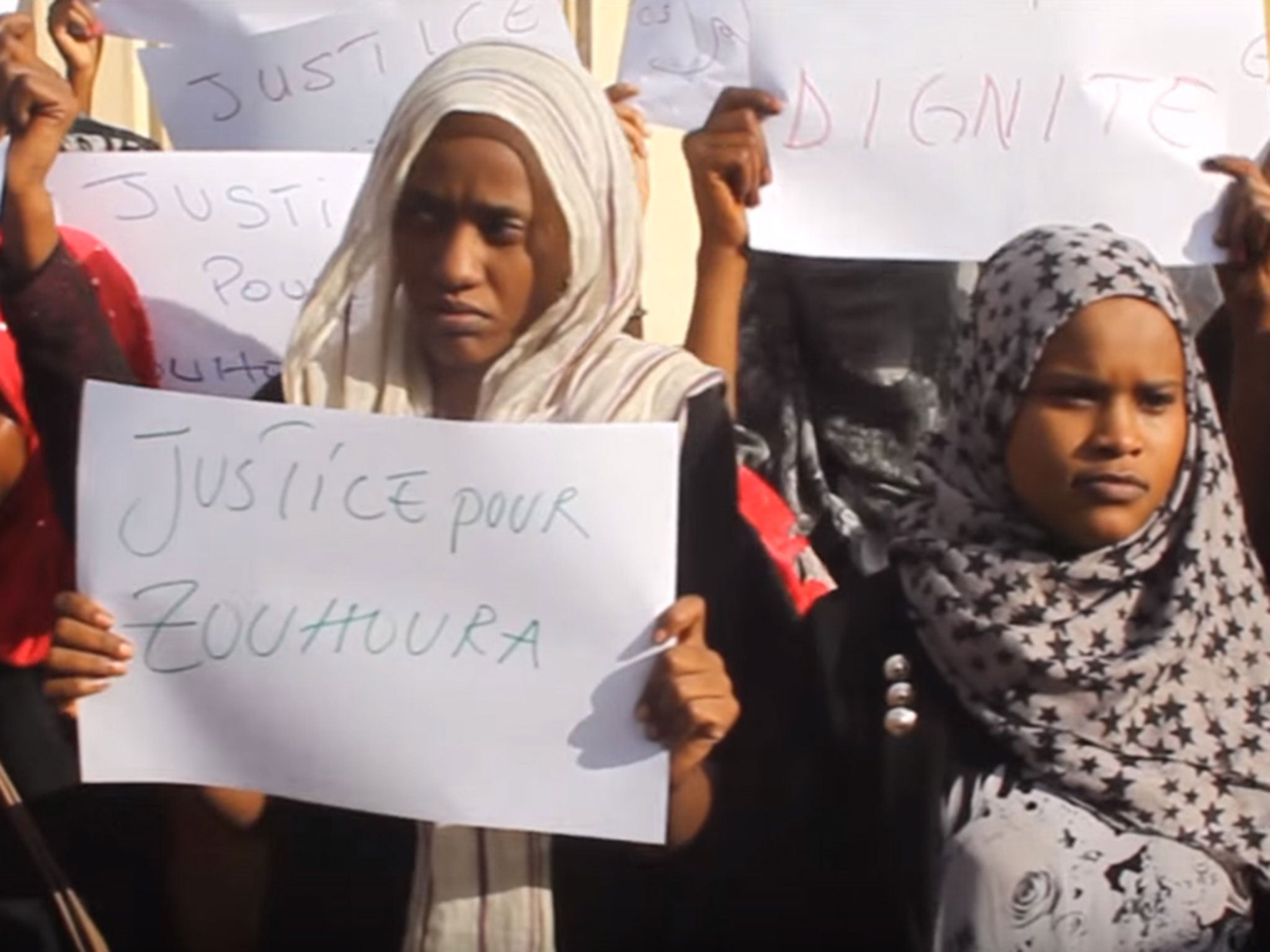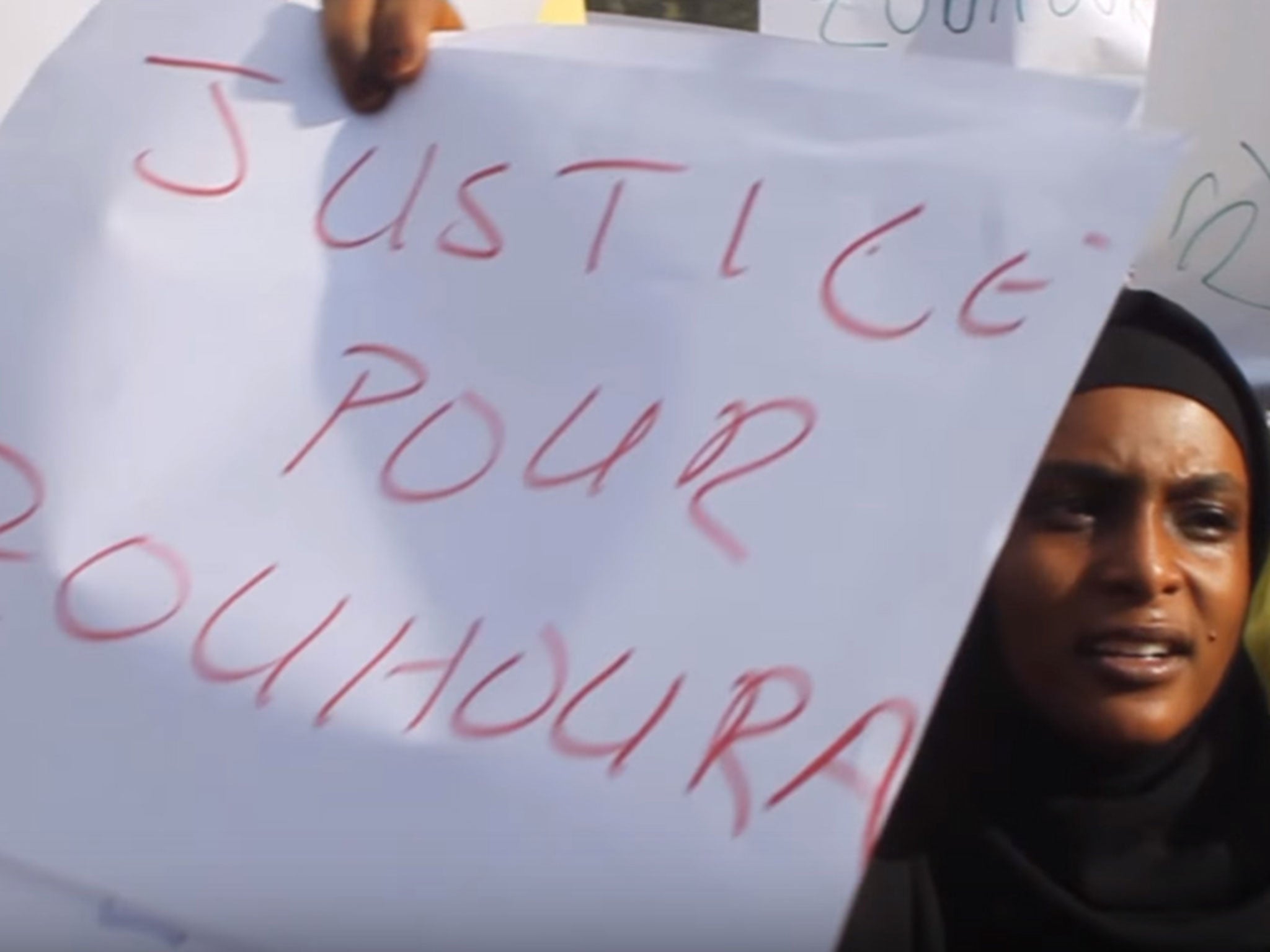Chad teenager's gang-rape galvanises protests and opposition to President
Chadians take to streets to protest against sexual violence but the leader – running for his fifth term – is unlikely to allow popular movement to grow

Your support helps us to tell the story
From reproductive rights to climate change to Big Tech, The Independent is on the ground when the story is developing. Whether it's investigating the financials of Elon Musk's pro-Trump PAC or producing our latest documentary, 'The A Word', which shines a light on the American women fighting for reproductive rights, we know how important it is to parse out the facts from the messaging.
At such a critical moment in US history, we need reporters on the ground. Your donation allows us to keep sending journalists to speak to both sides of the story.
The Independent is trusted by Americans across the entire political spectrum. And unlike many other quality news outlets, we choose not to lock Americans out of our reporting and analysis with paywalls. We believe quality journalism should be available to everyone, paid for by those who can afford it.
Your support makes all the difference.Zouhoura Ibrahim knew she had to speak out after she was kidnapped by a group of men and gang-raped on camera as she cries and begged for her ordeal to end.
The 18-year-old thought one of her five attackers was the son of a government minister, and she felt it was her duty to seek justice.
“I just want to get what’s right from them,” she says via telephone from the capital N’Djamena, her voice weak.
The incident has prompted a huge public outcry, with thousands taking to the streets in recent days under the slogan “That’s Enough”.
The proteest movement has, perhaps for the first time in a generation, threatened the rule of President Idriss Deby Itno, the 63-year-old leader who is running for re-election in April, to what would be his fifth term.
The government announced a ban on the protests soon after they began on 15 February, and a crackdown by the army has left at least two students dead. But the response has only motivated more people to take to the streets.
A nationwide strike last Wednesday left classrooms shuttered and the two biggest markets empty. In the second biggest city of Moundou, even taxi drivers refused to budge.
“We went on strike and closed down our shops because the government prevented us from protesting to get Zouhoura’s rights,” said Musa Abdulrahman, a shop owner in N’Djamena’s biggest market.
Zouhoura was kidnapped and raped earlier this month. Three of her attackers, she claims, were classmates.
When she was kidnapped, she said, the men filmed her naked and threatened that if she told anyone they would put the video on social media. “But I had to tell my parents,” she said. Zouhoura’s father, who is running in the elections against Mr Deby, filed a complaint over the attack. Soon after the attack, the video reportedly briefly appeared online. Police have arrested at least two of the suspects, the AFP reported. Among those believed to be involved in the incident are the sons of a government minister and three army generals.

Zouhoura spent most of her life in Paris with her uncle and guardian Mohammed Ibrahim, before moving back to Chad and enrolling in an elite school seven months ago.
Mr Ibrahim, still in Paris, first established the protest campaign following her rape in France, from where it picked up momentum across the world.
“We won’t stop demonstrating until we see all the offenders in prison,” he says. He says the campaign has led other women to seek him out via social media, desperate to speak about similar experiences. On Tuesday, the government blocked access to social media sites for 24 hours.
Mr Ibrahim says government officials have threatened his niece, and forced her to appear on television telling people not to demonstrate.
“Zouhoura is really scared of them now and we want to get her out of the country so that she will be able to talk publicly about what has happened to her,” he says.
The UN has said sexual violence remains a serious problem across Chad, six years after its brutal civil war. Women are vulnerable to forced marriage, polygamy and genital mutilation.
A coalition has been formed between 10 NGOs in Chad, named Respect Sisters, which has called for an international human rights organisations to guarantee a free and fair trial for the alleged perpetrators of the crime against Zouhoura.
“We were shocked by the incident and when we started the coalition, many girls contacted us and accused men of raping them,” said a women’s rights campaigner in the coalition who refused to give her name for safety reasons.
But the protests have also galvanised a wider frustration among the people of Chad over corruption and the dire state of the economy, despite the oil revenues the country has been accruing in recent years. Chad is one of the world’s poorest countries.
The protests may be a challenge to Mr Deby ahead of presidential elections on 10 April, but the already violent repression is a hint that the former warlord is unlikely to let opposition grow peacefully. As well as the ban on social media, the protests have been almost absent from television, and the government last week imposed limits on the movement of Saleh Kebzabo, the leader of the political opposition.
In a statement sent to AFP last week, the opposition gave its support to the protests, and urged the people of Chad to “turn this sombre page in their history by bringing about change by legal and peaceful means, the only safeguard to pull the country out of a rut”.
As for Zouhoura, the government has been accused of abandoning the case, leaving her with little hope of justice.
Youssef Hassan, a spokesperson for the NGO Human Rights in Chad, said he believed the perpetrators were likely to get away with their crime.
He added: “We condemn those barbaric acts and we will fight to the end for the right of Zouhoura and all the other victims.”
Join our commenting forum
Join thought-provoking conversations, follow other Independent readers and see their replies
Comments